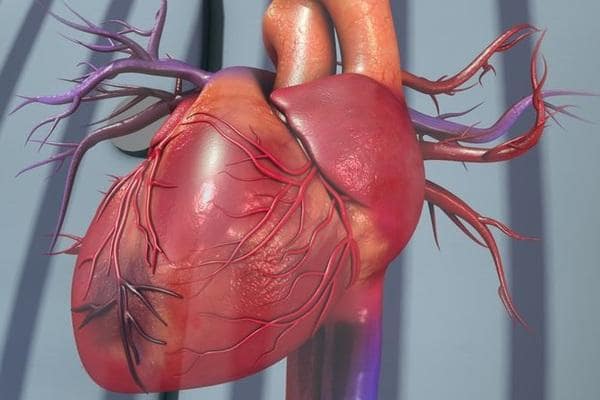Зміст
A heart attack is always life-threatening. It can be very insidious because it often attacks quietly and proceeds without the classic symptoms. Either the characteristic sharp and radiating pain in the sternum or numbness of the left arm does not accompany it. There is only excessive fatigue, malaise and stomach ailments or fainting.
The patient does not even suspect that he has suffered a “silent” heart attack. It perfectly mimics stomach flu or simple fatigue. Therefore, it is very easy to overlook it. This leads to scarring of the heart that can only be detected on an ECG. What nonspecific symptoms indicate the onset of “silent” acute cardiovascular disease? Why is immediate response and self-monitoring of health so important? How to provide first aid?
What is bad for the heart and leads to a heart attack?

Intensive lifestyles, chronic stress, lack of rest time, fatty and poorly varied diets, alcohol, cigarettes and other stimulants, frequent consumption of coffee or caffeinated beverages, and pre-existing medical conditions such as diabetes are just a few of the causes that contribute to the occurrence of heart disease. The risk of developing them increases with age, but is also very high in young people. Without an adequate diagnosis, active specialized treatment, lifestyle changes and menus, the lesions progress and often lead to faster death. A weakened organ usually tells you that something is wrong with it, but not always.
A “quiet” heart attack can be more fatal than a classic one.
Classic myocardial infarction is most often accompanied by chest pain that spreads to the rib, shoulder blades, limbs and jaw, shortness of breath, excessive sweating, stomach problems, nausea, and anxiety. Additionally, patients often complain of numbness in the left arm. However, symptoms may or may not be gender-specific. In women, for example, the characteristic coronary pain is absent or very weak. It also happens that the patient does not realize that he has just suffered a heart attack, because of which his heart suffered.
In medicine, such cases are called “silent” myocardial infarction, and in practice they are often more fatal than traditional myocardial infarction. Seemingly low-risk symptoms, reminiscent of stomach flu rather than heart problems, lull the vigilance. The patient, unaware of the danger, cannot adequately respond and seek help from a cardiologist, and the latter’s intervention is crucial. Studies by American scientists show that the occurrence of a “silent heart attack” in subsequent years increases the risk of death by three times.
A “quiet” heart attack can easily be mistaken for the flu.

“Mute” or “latent” myocardial infarction can easily be dismissed and interpreted as ordinary stomach flu or fatigue. When it occurs, the characteristic sharp pain in the chest does not occur. It is accompanied by ailments of the abdominal cavity, vomiting, problems with maintaining balance, increased fatigue, general malaise, i.e. symptoms that the typical heart patient does not usually associate with a heart attack, but blames fatigue or stomach ailments.
“Quiet” heart attack hurts the heart
A silent heart attack results in scars that form on the heart. A specialist can detect them with an ECG examination. Without proper treatment, the lesions progress, which is why it is so important to be aware of the risk and take appropriate precautions. The basis in this case are regular examinations and checks by the therapist and specialists, as well as self-monitoring of the state of health, but not only. A properly balanced diet rich in fruits, vegetables, or good unsaturated fats such as fish, avoiding stimulants and physical activity is also key.
Heart attack: how to act and help?
The body reports dysfunctions and developing heart diseases much earlier. Anxiety should be due to rapid heartbeat, dizziness, excessive sweating, panic attacks, chronic cough, difficulty breathing or tingling in the chest during exercise, as well as stomach discomfort such as heartburn or indigestion, and excessive fatigue in general poor psychophysical state.
In the case of a heart attack – classic or latent – you need to act quickly, i.e. immediately call an ambulance and take a half-sitting position. Since a heart attack is often accompanied by loss of consciousness, it is worth opening the door to the apartment to facilitate the actions of rescuers – especially when there are no household members nearby. If, in turn, the situation forces you to save others,








